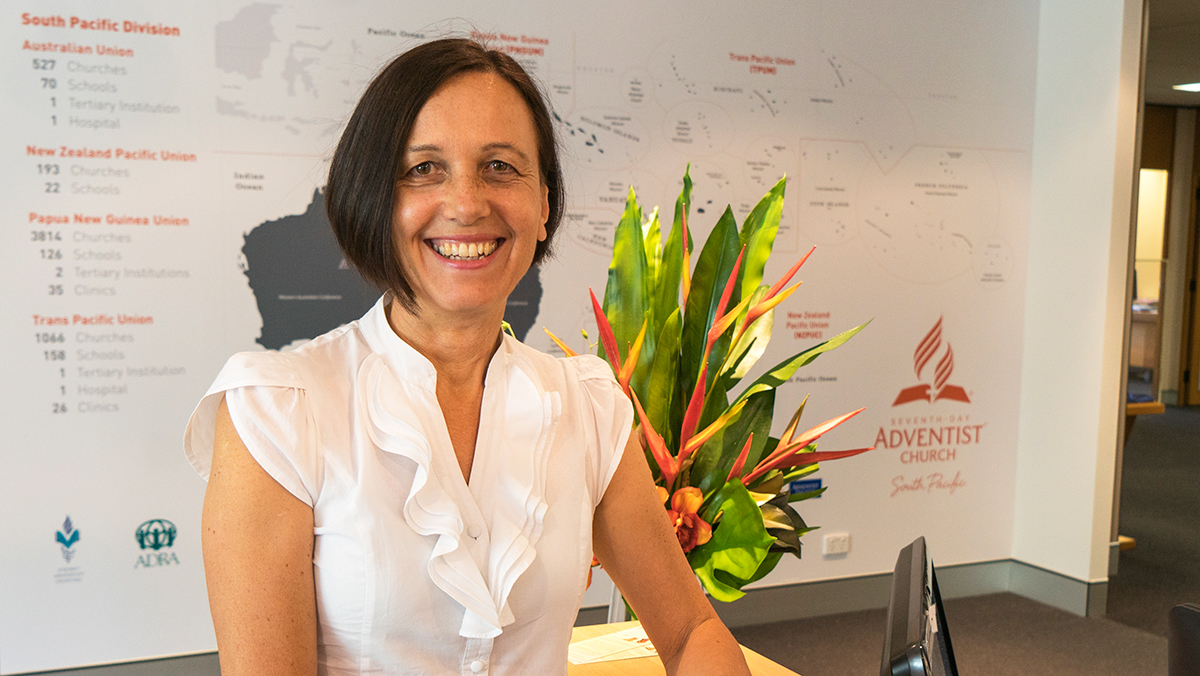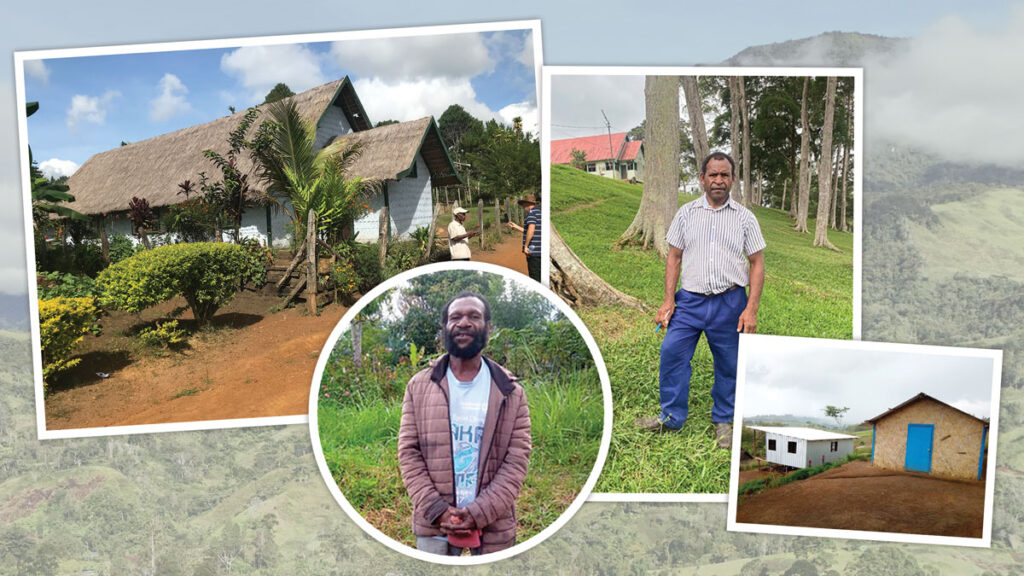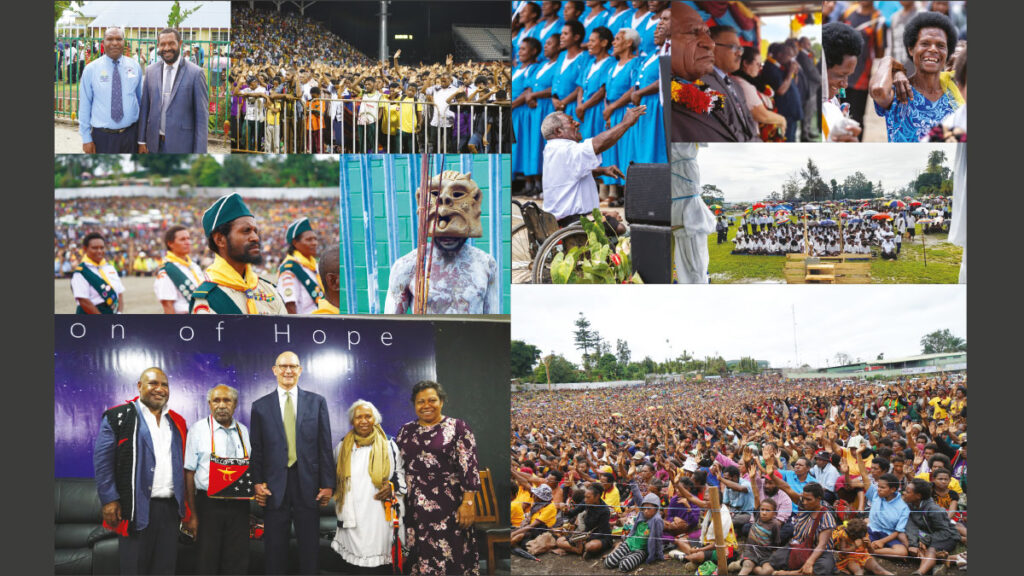For someone who never wanted any leadership role, I have come a long way.
I vividly remember walking from the college administration building, a wonderful 16th century castle, towards the dormitories with my then boyfriend. We were planning our future.
It was now obvious I would marry a pastor—another on my list of things I didn’t want. The first one was that I didn’t want to marry a man with blond hair. You guessed it. I got that too!
And even though I didn’t want to be a leader, I am one. Let me take you on the journey of how that came about.
Back to that walk from the castle. I remember telling my boyfriend that I would agree to live as a pastor’s wife but he needed to know that I was not willing to take any leadership role. He promptly agreed. What else would a young man in love do, except agree with his girlfriend? Looking back, I’m not sure he even heard what I said. Why do I say that?
One of the first things he volunteered me to do was to play the pipe organ in the big church in Collonges-sous-Salève, an Adventist seminary in France. I protested in vain. I was petrified of playing the organ for the church service. They had a tradition of playing a classical piece before the service started. On top of that, the whole stanza of the hymn was played once before the congregation joined in singing.
I am a self-taught musician and classical pieces were not part of my repertoire. However, the director of music was happy to provide some simple pieces for me, and I led that church through music when rostered for the two years we spent in France.

My main occupation while in France was to clean houses for a few wealthy families—walking their dogs, looking after their babies, ironing clothes and supporting our life while my husband was completing his masters in theology. If you are doing an honest job, it doesn’t matter what job it is; what matters is how well you do it.
While in the Philippines, my longest and greatest leadership role began. I became a mother. What a journey that has been! How it changed me! How it challenged me! How much I had to learn, to unlearn, to search, to pray, to cry, to laugh, to hope, to despair and to love. I believe there is no greater role than to raise children who are responsible, loving, contributing members of society, faithful to God.
While pregnant, an opportunity opened for me to complete a masters degree. I took that opportunity and flourished. I could never imagine myself studying at postgraduate level, never desired to study at that level, but I took the opportunity when it presented itself. To complete the course, you have to be a leader. You have to lead yourself. Isn’t that often the most difficult part of leadership?
The next step in our journey was my husband’s first post as a pastor in Wangaratta, a rural Victorian town. We never imagined, let alone planned, to work in Australia, yet here he were: Australia. I was involved in church life in many areas: children’s Sabbath School, music, visiting, prayer meetings, hospitality, evangelistic campaigns, producing a weekly newsletter.
Then on to Melbourne, now with our two boys. New opportunities, new challenges, but many similarities to our previous post.
The next step, however, proved to be quite a leap.
It’s amusing how things develop. It was my husband who was offered work in Pakistan. We were clearly told that I would not have a job there. Guess what the first question posed to me was when we arrived? Can you do . . . ?

There was no shortage of work that needed to be done. I taught maths in primary school, English as a second language for those entering college, I home-schooled and then landed a job not only teaching in the theology department but being a department head.
I remember when the Adventist Accreditation Association came for their routine audit and one of their recommendations was to replace the female head of religion department with a male. They claimed they had never seen a female head of the religion department before. Hey, I did not ask for this role. I got it and did the best I could. However, that request was taken into consideration and a male was given that responsibility. Instead, I became the principal of the elementary school, while still teaching several subjects in the theology department. Pakistan was definitely a major step up in my leadership development.
I’m getting closer to where I am now. But there is still one stop before I’m done: Papua New Guinea. I worked as lecturer in the school of theology for nine years. For four of those years my additional responsibility was to lead teen Sabbath School—a task nobody was willing to undertake. I loved that leadership opportunity. This one I volunteered for. That passion for young people led to the choice of my doctoral studies: Doctor of Ministry in Youth Family and Culture, at Fuller Theological Seminary.

My work at the South Pacific Division office started by first being assistant to the president and also office manager. It gave me an overview of the office and opened the door slightly into administration. This was a very difficult time for me. There were so many major changes in my life that happened in a very short period of time. I might write about that some other time.
When I said “yes” to a call to work as associate division secretary, I did not realise how difficult and steep a learning curve that would be.
I’ve been asked many times whether I like my job. For the first three years, I couldn’t find an immediate answer. I remember once, another person answered for me. He said, “Nobody likes this job. It is not the kind of job somebody would volunteer to do, and if they would, there is something wrong with them. But you are asked to do it and you make the most of it.” At the time, this validated my feelings. However, I’ve since changed my mind.
 So, what does an associate division secretary do? This is a significant leadership job for a number of reasons. I document the official work of the Division, thus writing history for posterity. This is such an important job, as in order to take the steps forward, we often need to check what was done in the past. Future leaders will go back and check what I documented. I contribute to decision making, by speaking on issues in a variety of committees and boards, by voting and by supplying necessary information. I am involved in writing policies for the Church, which impacts the ministry of everyone employed by the Church. I schedule events, such as a variety of committees, boards and conferences where major decisions are made that direct the work of the Church in this vast geographical territory.
So, what does an associate division secretary do? This is a significant leadership job for a number of reasons. I document the official work of the Division, thus writing history for posterity. This is such an important job, as in order to take the steps forward, we often need to check what was done in the past. Future leaders will go back and check what I documented. I contribute to decision making, by speaking on issues in a variety of committees and boards, by voting and by supplying necessary information. I am involved in writing policies for the Church, which impacts the ministry of everyone employed by the Church. I schedule events, such as a variety of committees, boards and conferences where major decisions are made that direct the work of the Church in this vast geographical territory.
For someone who did not want any leadership role, I have come a long way. How did that happen?
I was willing to say yes when God called. I worked hard. I cried. I asked for help. I did the best I could in the circumstances. I was loyal and committed. I persistently relied on God to give me strength and wisdom.
Where next? Easy now. I don’t want to go anywhere. I’m still learning the ropes at this job. However, when God decides it’s time to move, I’ll say “Yes”.
Dr Danijela Schubert is associate division secretary for the South Pacific Division.






